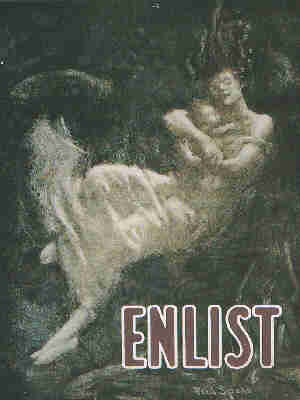|
In 1918, an arm of the American government in order to assure continued public support for the war effort published the "Reasons" why American chose to enter the World War. Since this was done by a U.S. Government funded and supervised organization, these carried the weight of "official" pronouncements. The organization responsible for distributing this information was called the Committee for Public Information which played a number of roles for the American government during the war, including serving as a propaganda ministry. Below is a clearly states list of reasons for America declaring war expressed with some florid language of the propagandist. Nevertheless, this clearly summarizes what the citizenry was told about why their nation was fighting a costly war.
The renewal by Germany of her submarine warfare.
Imperial Germany was running amuck as an international desperado
Prussian Militancy and autocracy let loose in the world disturbed the balance of power and threatened to destroy the international equilibrium.
The conflict [had gradually shaped] into a war between the democratic nations on one hand and autocratic on the other.
[America's] tradition of isolation had grown out worn and could no longer be maintained in the age of growing interdependency.
Because of the menace to the Monroe Doctrine and to [America's] independence.

George Creel |
The brainchild of muckraking journalist George Creel, the Committee for Public Information was an overt propaganda bureau during the First World War and succeeded in that role. The country remained, by and large behind the war while it was being fought, the idea of the press or politicians with an ideological agenda undercutting the troops in the field remained utterly unthinkable, and — contrary to what is sometimes alleged — there was no government led bashing of German-heritage citizens. The Committee, however became huge, influential, and probably inevitably, quite unpopular. The public, Congress, and even the President came to resent the intrusiveness of the Committee.
Their pamphlet The Study of the Great War was the primary source of the material in this article. A branch of the committee also supervised production of all the American war posters of the war such as the example above. MH
|



